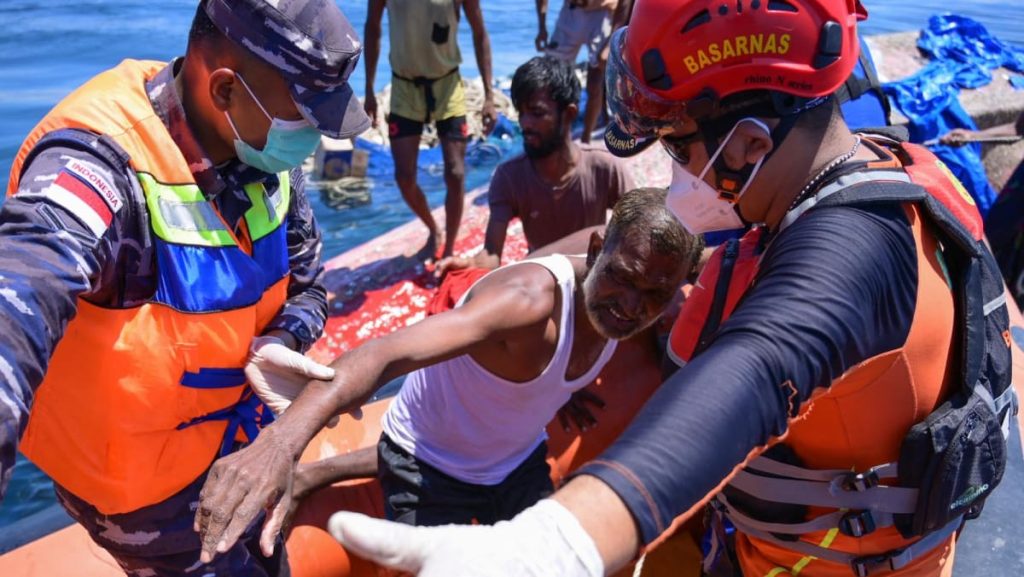The Indonesian authorities in Meulaboh rescued a group of 69 Rohingya refugees who had been at sea for several weeks and were in distress after their boat capsized. The refugees were taken to shore on Thursday after a strenuous journey. This rescue operation highlights the dangerous conditions that Rohingya refugees face while attempting to flee persecution and violence in their home country of Myanmar. Despite the risks, many continue to undertake these dangerous journeys in search of safety and a better life.
The plight of the Rohingya refugees is a dire one, as they are often subjected to persecution and violence in Myanmar. Many have been forced to flee their homes and seek refuge in other countries, including Indonesia. The recent rescue of 69 refugees in Meulaboh is just one example of the challenges faced by this vulnerable population. The Indonesian authorities are working to provide assistance and support to the refugees, but more needs to be done to address the root causes of their displacement and ensure their safety and well-being.
The capsizing of the refugee boat serves as a stark reminder of the perils faced by Rohingya refugees as they attempt to flee their home country. Many are forced to undertake dangerous sea journeys in overcrowded and unseaworthy vessels, risking their lives in the process. The incident in Meulaboh underscores the urgent need for increased rescue and support efforts for Rohingya refugees, as well as addressing the root causes of their displacement to prevent further tragedies from occurring.
The international community must also play a role in addressing the plight of Rohingya refugees and supporting countries like Indonesia that are hosting large numbers of displaced people. Humanitarian organizations and governments must work together to provide assistance and protection to Rohingya refugees and address the root causes of their displacement. Efforts to improve conditions in Myanmar and promote peace and reconciliation are essential to ensuring the safety and well-being of the Rohingya population.
The rescue operation in Meulaboh highlights the need for increased cooperation and coordination among countries in the region to address the challenges faced by Rohingya refugees. The Indonesian authorities have taken swift action to rescue and assist the refugees, but more needs to be done to ensure their safety and well-being. By working together and sharing resources and responsibilities, countries can better address the needs of Rohingya refugees and provide them with the support and protection they desperately need.
In conclusion, the rescue of 69 Rohingya refugees in Meulaboh serves as a reminder of the dangers faced by this vulnerable population as they seek safety and refuge in other countries. The international community must work together to address the root causes of displacement and provide assistance and protection to Rohingya refugees. By increasing cooperation and coordination among countries in the region, we can help ensure that Rohingya refugees are safe and can rebuild their lives in peace and security.















